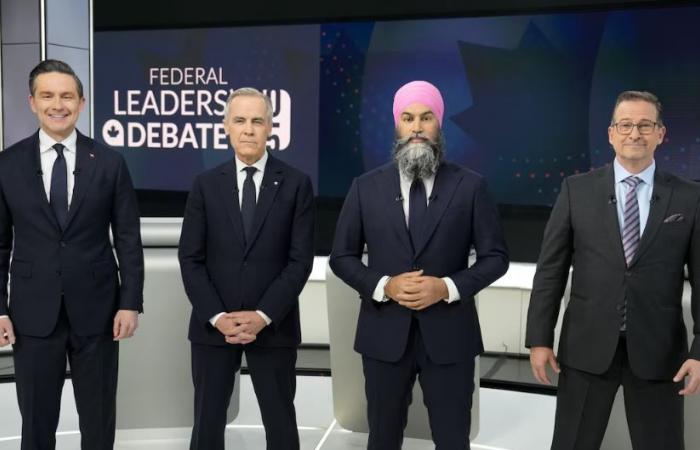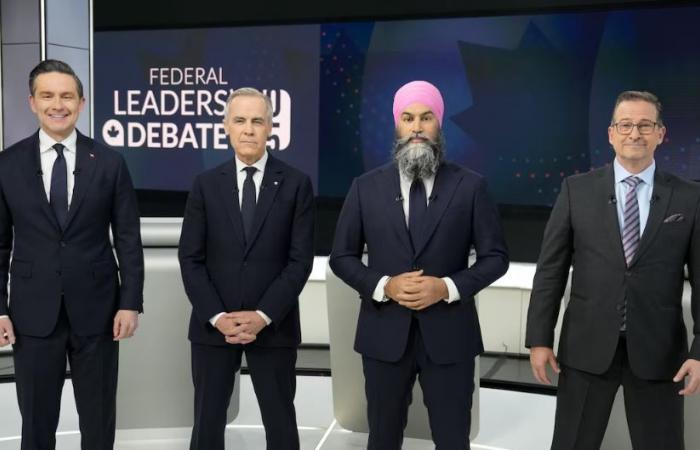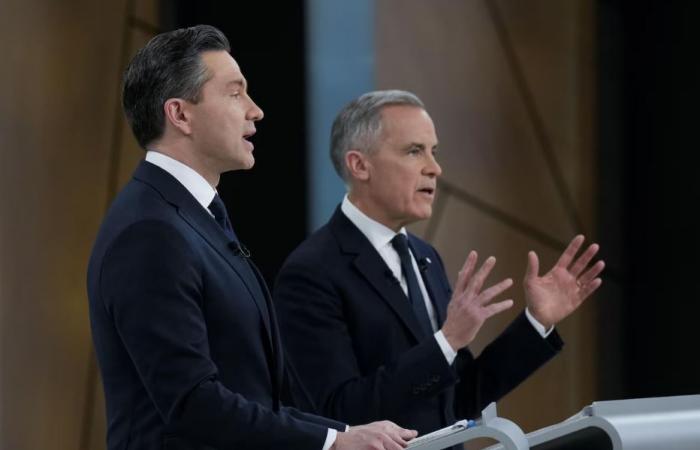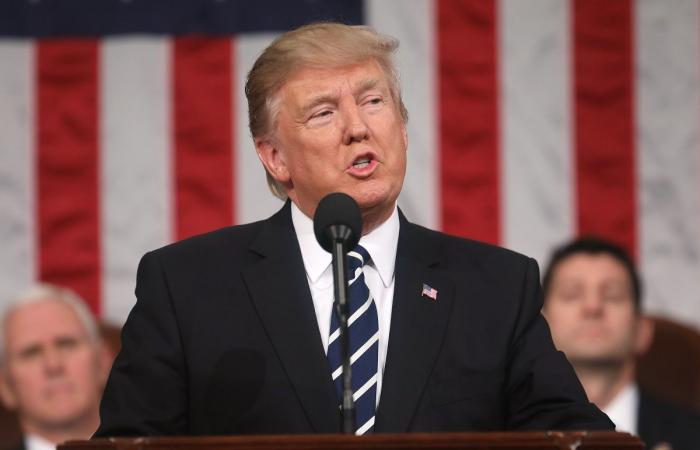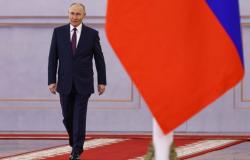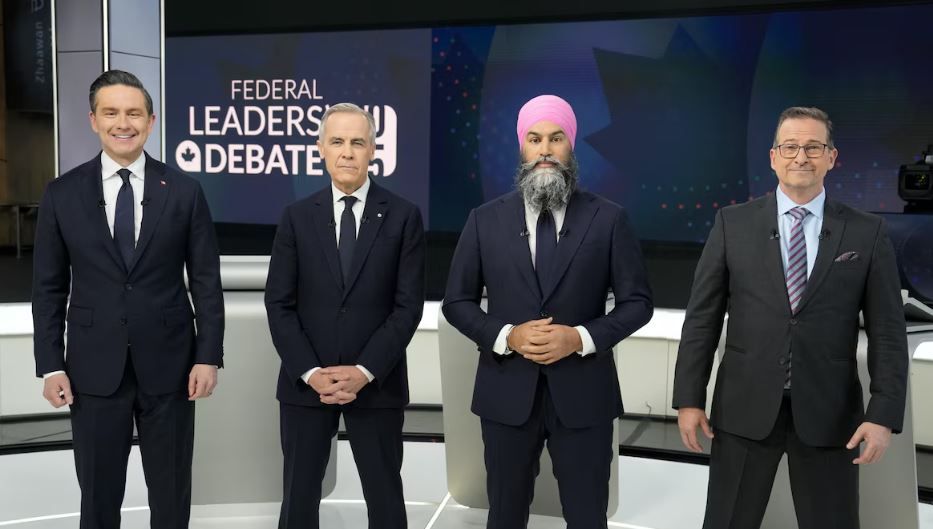
In this debate by chiefs in English which focused, in particular, on the affordability, the cost of living, energy, climate, public security and customs rights, the Liberal chief Mark Carney was still the target of fire from party leaders.
The conservative chief Pierre Poilievre has multiplied the efforts to argue that he defends the same ideas as his predecessor, Justin Trudeau.
He notably criticized him on the housing crisis, saying that he repeats the liberal promises that prevent people from acquiring a house.
Marc Carney replied that Pierre Hairy is struggling to find a new line of attack, stressing that the conservative chief has spent years opposing Justin Trudeau and carbon tax.
The two left (…) I am a really different person from Justin Trudeau, said Marc Carney.
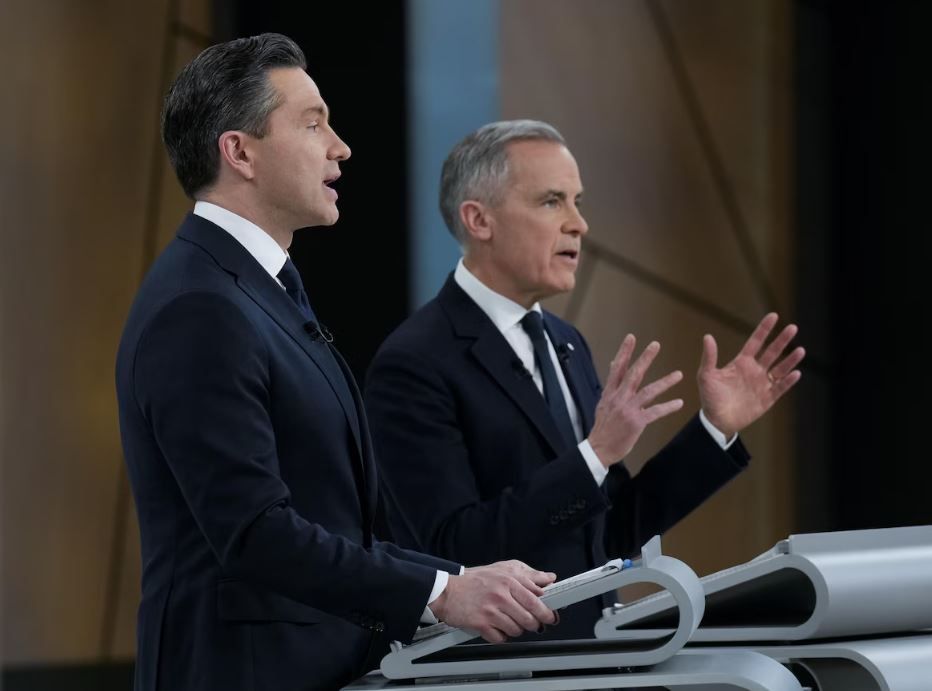
For his part, the chief blockist Yves-François Blanchet also compared the liberal chief to Justin Trudeau, indicating that he must demonstrate that he is better than his predecessor.
He also questioned his skills in crisis management and negotiations, mentioning that Brexit took place when he was governor of the Central Bank of England.
You say that you are a good crisis manager (…) but the only negotiations you have made are for the Bermuda accounts, said Yves-François Blanchet.
The neo-democratic chief Jagmeet Singh especially took it to Pierre Poilievre, but also criticized Marc Carney on his time spent in the private sector and on his decision to give a tax reduction to the millionaires; Accusing him of prioritizing the interests of the most wealthy.
Who do you really work for?, Jagmeet Singh asked Mark Carney.
“I work for Canadians,” replied Mr. Carney, mentioning his visit to the head of the Bank of Canada.
Marc Carney defended his assessment, adding that he can use his experience to serve the country.
At the end of the debate, the chief of the Quebec Bloc invited the other federal chiefs to meet a week after the end of the elections, regardless of the results.
We must meet to manage this crisis with the United States, said Yves-François Blanchet.

I can’t wait to come together with everyone, replied Mark Carney. We need to be a team in times of crisis, but the person who will be elected must also work with all the provinces, the indigenous leaders, the unions, he added.
Negotiations with Donald Trump
Canadian political leaders also spoke about negotiations with Donald Trump administration.
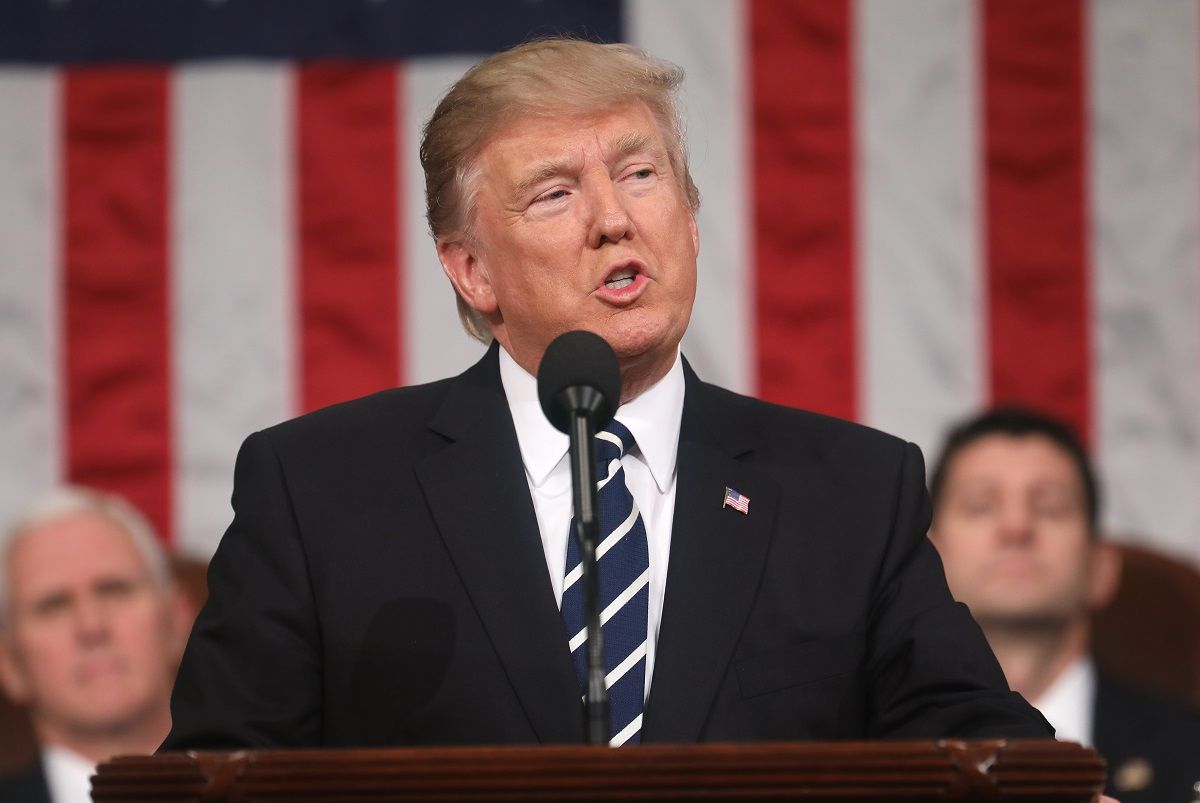
Mark Carney stressed the importance of building a strong economy to negotiate with the United States.
The relationship with the United States as we knew it is over, he said.
He put forward the need to diversify business partners with allies who share a vision similar to that of Canada.
Pierre Poilievre argued that Canada should be in a position of strength in the context of negotiations with the United States.
He proposed to cut taxes as well as bureaucracy and facilitate the development of energy projects.
Yves-François Blanchet recalled the importance, according to him, to recognize the economic difference of Quebec and to give the province its own voice at the negotiating table.
If this difference is respected, Quebec will be a reliable partner, he assured.
Jagmeet Singh shared his personal experience in the border city of Windsor.

Canadians are right to fear the uncertainty from the White House, he said, supporting better protection of the Arctic and the country’s security.
The challenges in the Canadian Arctic absent from the debates
With the exception of the words of the neo-democratic chief on security in the Canadian Arctic, the daily problems facing the country’s Arctic Communities were absent from the debates in French and in English.
Representing 40 % of the country’s territory and more than 70 % of its coastline, the Arctic is at the center of many international geopolitical issues.
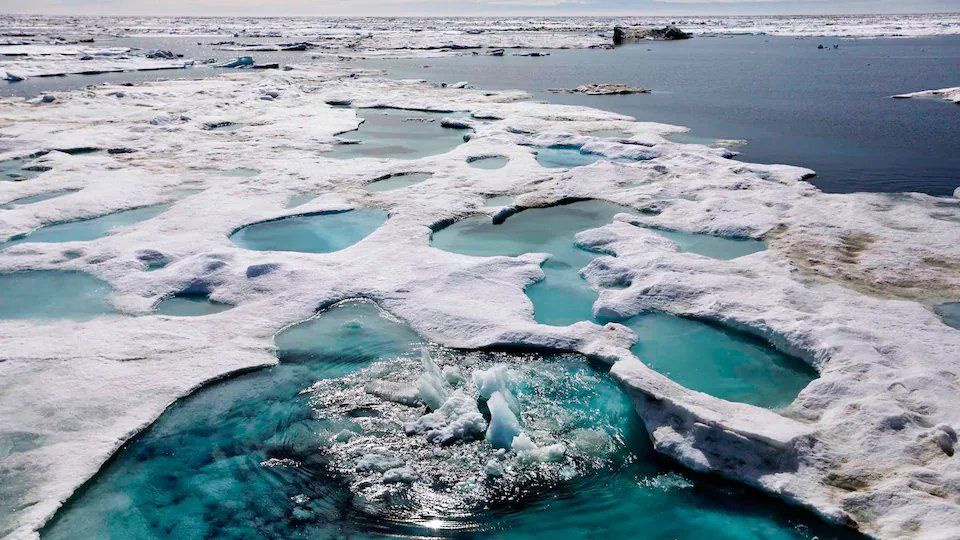
In a press release released before the debate of chiefs in English, the Conservatives announced the launch of the second part of their defense plan in the region.
According to the party, this plan aims to strengthen the Canadian military presence there.
In particular, it provides investments in military infrastructure and in surveillance and patrol capacities.

(Radio-Canada)
Cancellation of the press scrum
Press conferences after the English debate were canceled.
This is a first in the recent history of electoral debates.
The Director General of the Commission for the Debates of Chefs, Michel Cormier, explained that this decision occurred because the organization could not guarantee an environment conducive to journalists.
The cancellation occurs after several criticisms towards the commission, which left militant media, of which Rebel Newsask many questions during press conferences after the French debate on Wednesday.
Read also:

